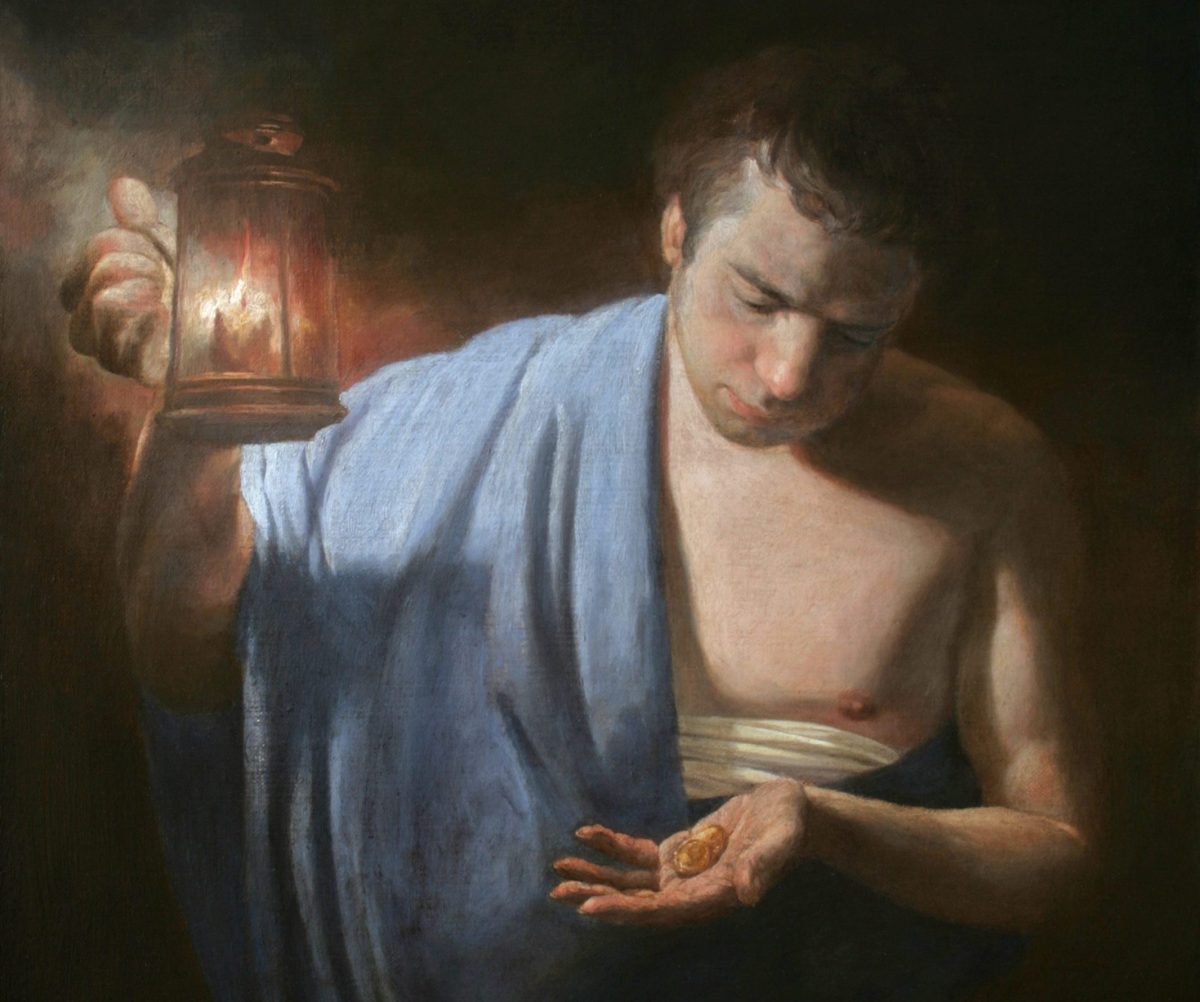Image: Parable of the Talents by A. N. Mironov, sourced from Wikimedia Commons
By Amber Kinloch
You might be familiar with the parable of the three servants entrusted with different numbers of talents (Matthew 25:14-29). The servants given five and two talents, respectively, are commended by their Master for making good use of what they’re given. The last servant is condemned for wasting his single talent.
The classic interpretation of this parable says that the talents represent our different gifts and abilities. Some people have more, some less, but we’re all called to use our gifts for God. If we don’t, we’ll pay the price.
Recently I heard an alternative interpretation from a local priest. Fr. B., drawing from the writings of various theologians, gave an explanation based on numerology, which turned the whole parable on its head.
According to this interpretation, the servant given five talents is given the least. Why? Because the five talents represent the senses. The senses are good and useful, and one can do much with them. Fr. B. pointed to St. Augustine as an example of a man skilled in the use of his senses. There’s his struggle with lust, yes, but one also gets the sense from what we know about him that he was a wealthy man who genuinely appreciated the finer things of life (food, wine, elegant clothes, etc.).
But that wasn’t enough for Augustine. He sought for something deeper, and became like the servant with two talents. These represent the intellect and the will, which are far more valuable than the senses and under whose dominion the senses properly fall. St. Augustine plainly was a master in the use of his intellect (his writings) and his will (overcoming sin, holding out amidst various troubles). But what we really admire him for is his possession of the single talent.
This talent is contemplation of God. It is the most important one and, as Father noted, anyone can possess it even if they lack mastery in using their senses or their intellect and will. For instance, think of the blind dwarf St. Margaret of Castello. No one would consider her “skilled” in using her senses. Or think of the shepherd children of Fatima. They did not possess brilliant intellects or strong wills. Their beauty is in their innocence, their simplicity, and above all their devotion to God.
Let’s pray for the gift of contemplation, invoking the aid of Mary, who “kept all these things, reflecting on them in her heart” (Luke 2:19). She will surely hear our prayer.

Amber Kinloch
Amber writes from the bunker of her living room. There she hunkers down with her laptop and a blanket while keeping an eye and ear tuned in to the activity of family life. Music set on loop keeps her energy flowing as she muses on the deeper happenings of ordinary life and what food to restock the fridge with.






0 Comments